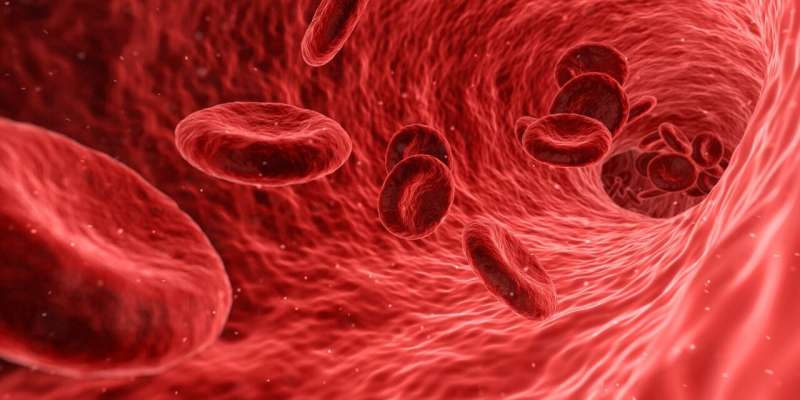Promising clinical trial results for drug for rare disease in which patients can't eat fat

People with familial chylomicronemia syndrome are born with a genetic mutation that means they can't produce an enzyme called lipoprotein lipase. Without the enzyme, their bodies can't break down dietary-derived fat in the blood. Instead, fat-carrying molecules called chylomicrons build up in the blood, causing many life-threatening symptoms, most notably pancreatitis. People living with this condition must follow a strict low-fat diet, but there is no treatment.
Joseph Witztum, Ph.D., professor of medicine at University of California San Diego School of Medicine, recently helped lead a global research team that tested how well the drug volanesorsen reduces fat accumulation in the blood (triglycerides) of participants with familial chylomicronemia syndrome. In a randomized, double-blind Phase III clinical trial, 33 participants received the drug and 33 received a placebo.
Volanesorsen reduced triglyceride levels by an average of 77 percent. In contrast, for participants who received a placebo, triglyceride levels increased by an average of 18 percent.
These results will publish August 8, 2019 in the New England Journal of Medicine.
Chylomicrons carry dietary triglycerides from the gut into the blood, where they are normally broken down by the enzyme lipoprotein lipase. Without that enzyme, chylomicrons accumulate and thicken the blood of people with familial chylomicronemia syndrome.
"Chylomicrons are what you see when you see cream form on the top of milk," Witztum said. "For most people, when you eat a fatty meal for dinner at 6:00 p.m., the triglycerides are transported into the blood by chylomicrons and then lipoprotein lipase clears those out of the blood by 9:00 p.m. That's definitely not the case for patients with familial chylomicronemia syndrome."
Triglyceride levels are regulated by a molecule called apolipoprotein C-III, which is made in the liver, and then secreted into the blood. Volanesorsen, an antisense drug developed by Ionis Pharmaceuticals, is designed to block the mRNA in the liver that encodes apolipoprotein C-III. Reducing apolipoprotein C-III in the blood in turn reduces triglyceride levels. Triglycerides are often used as a measure for heart health, as high levels are associated with heart disease, even in otherwise healthy people.
Trial participants began by receiving 300 milligrams of volanesorsen under the skin once a week. The most common side effects were skin reactions at the injection site (20 of 33 participants who received volanesorsen vs. none in the placebo group) and thrombocytopenia (15 of 33 participants who received volanesorsen vs. none in the placebo group). Thrombocytopenia, or low levels of blood cells known as platelets, can limit the body's ability to form blood clots. Later in the trial, the doses were reduced to once every other week to reduce these side effects. The trial lasted for one year. Participants were aged 20 to 75 years old, 80 percent were white and 55 percent were female.
Volanesorsen was recently approved for clinical use in Europe, as an adjunct to diet in adult patients who have genetically confirmed familial chylomicronemia syndrome and are at high risk for pancreatitis, and who haven't responded to diet and triglyceride-lowering therapy. The team is now waiting for Food and Drug Administration approval to market the drug in the United States.
According to Witztum, this clinical trial also helped unravel some of the basic biology underlying dietary fat processing. Researchers had previously thought that lipoprotein lipase was a necessary intermediate that allowed apolipoprotein C-III to raise triglycerides levels. This trial revealed that that's not always the case—apolipoprotein C-III has a second role independent of lipoprotein lipase, in which it inhibits the liver from taking up triglyceride-carrying particles.
"This is the sort of information that could help inform better prevention methods and treatments for many types of heart disease, not just this particular rare condition," Witztum said.
More information: Joseph L. Witztum et al, Volanesorsen and Triglyceride Levels in Familial Chylomicronemia Syndrome, New England Journal of Medicine (2019). DOI: 10.1056/NEJMoa1715944




















